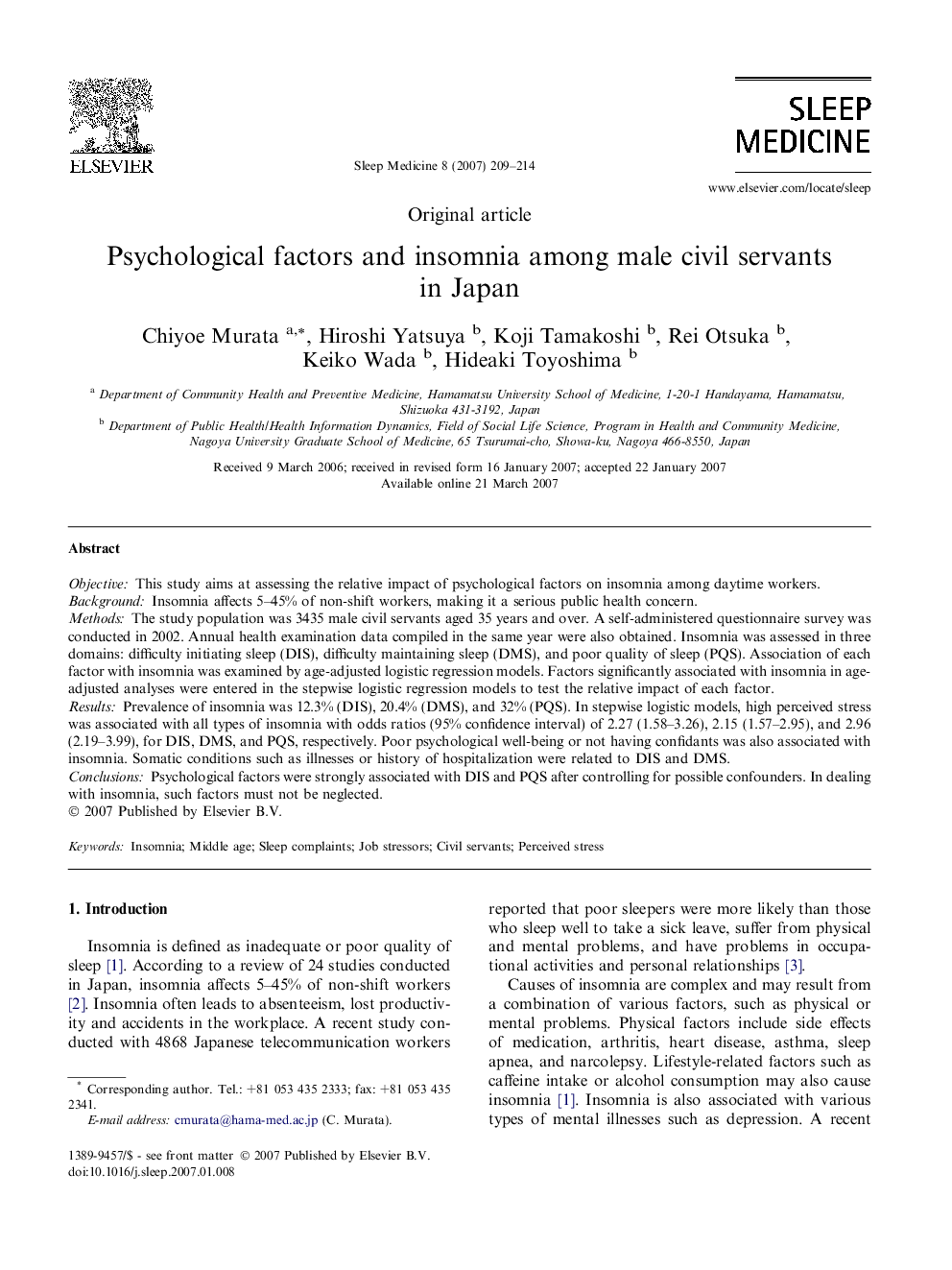| Article ID | Journal | Published Year | Pages | File Type |
|---|---|---|---|---|
| 3178135 | Sleep Medicine | 2007 | 6 Pages |
ObjectiveThis study aims at assessing the relative impact of psychological factors on insomnia among daytime workers.BackgroundInsomnia affects 5–45% of non-shift workers, making it a serious public health concern.MethodsThe study population was 3435 male civil servants aged 35 years and over. A self-administered questionnaire survey was conducted in 2002. Annual health examination data compiled in the same year were also obtained. Insomnia was assessed in three domains: difficulty initiating sleep (DIS), difficulty maintaining sleep (DMS), and poor quality of sleep (PQS). Association of each factor with insomnia was examined by age-adjusted logistic regression models. Factors significantly associated with insomnia in age-adjusted analyses were entered in the stepwise logistic regression models to test the relative impact of each factor.ResultsPrevalence of insomnia was 12.3% (DIS), 20.4% (DMS), and 32% (PQS). In stepwise logistic models, high perceived stress was associated with all types of insomnia with odds ratios (95% confidence interval) of 2.27 (1.58–3.26), 2.15 (1.57–2.95), and 2.96 (2.19–3.99), for DIS, DMS, and PQS, respectively. Poor psychological well-being or not having confidants was also associated with insomnia. Somatic conditions such as illnesses or history of hospitalization were related to DIS and DMS.ConclusionsPsychological factors were strongly associated with DIS and PQS after controlling for possible confounders. In dealing with insomnia, such factors must not be neglected.
